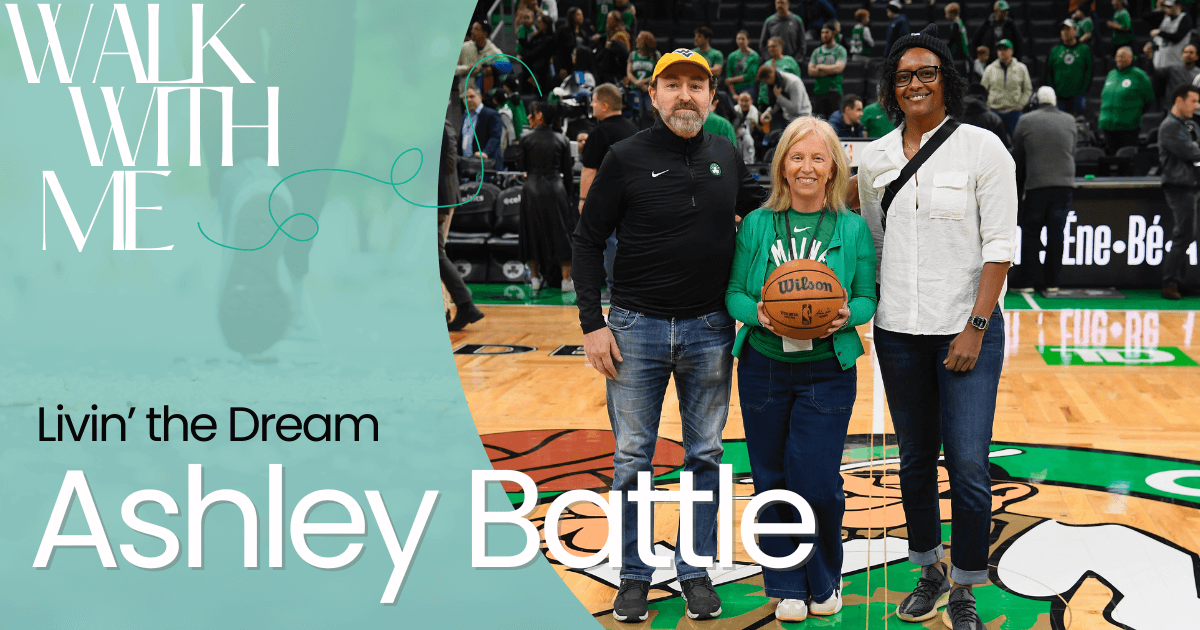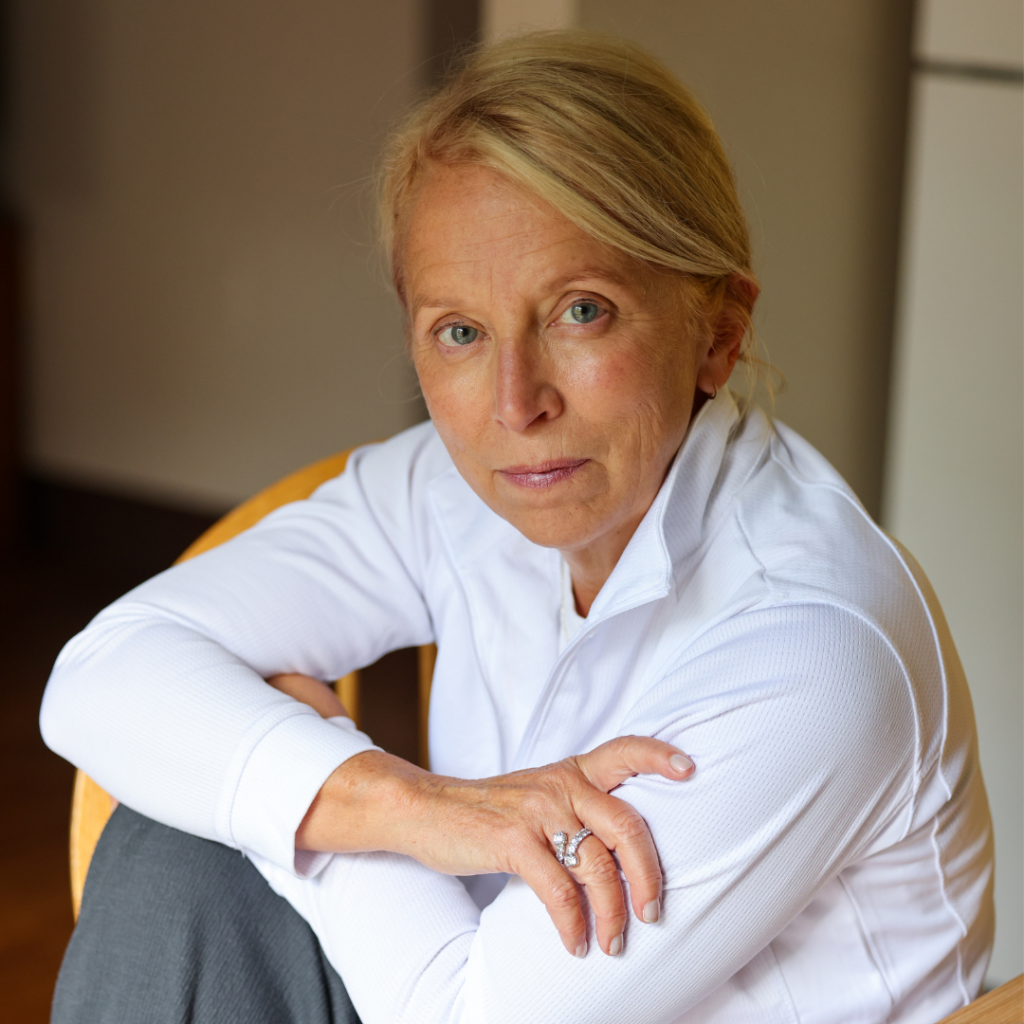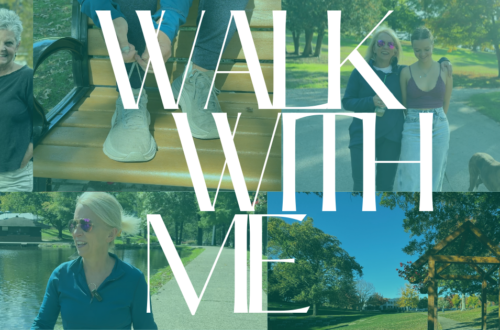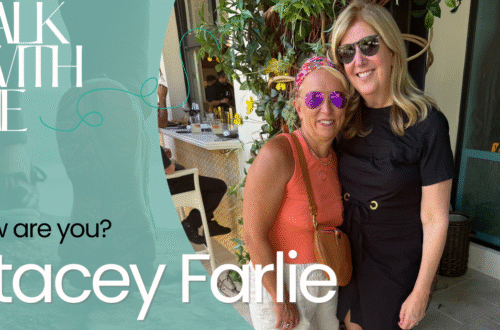AB: How are you doing?
Maine Celtics Coach, Tyler Lashbrook: Livin’ the dream.
AB: You know, when people actually say that, they don’t believe it.
Tyler: What do you mean?
AB: People don’t believe it. I’ve found in my experiences that people don’t believe when they say I’m living in a dream.
Tyler: It’s like a Midwest hello.
Liz: That is true.
Tyler: That’s what everybody says over there.
AB: Okay. On the East Coast, I’m like, You don’t believe that. I’ve worked at a few places where people would say that often and they were actually miserable.
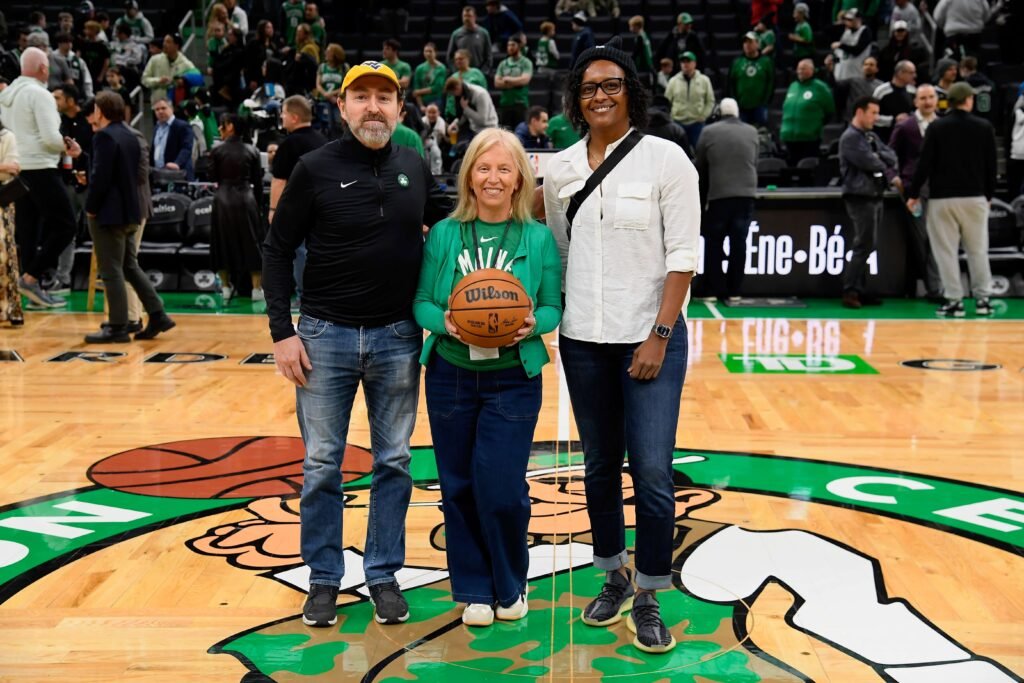
So many people would look at Ashley Battle’s life and say she is living the dream. Her fifth grade self might agree given she is a three-time NCAA Division 1 Basketball Champion and currently working in the front office of the Boston Celtics, but for Ashley the dream shifts. In Ashley Battle’s world, excellence isn’t a destination but a constant pursuit. The dream, then, isn’t static—it evolves, challenges, and propels her forward. Perhaps that’s what makes her attitude not just impressive, but genuinely inspiring.

AB: My expectations of myself are just so high. It’s just one of those things. You just never reach it. You’re always just pushing forward. You’re just never – satisfied.
Liz: So that keeps you a little bit humble? Because you know there’s some place higher.
AB: There’s something more I could do. You’re just never satisfied.
I’ve written about that nagging inner voice proclaiming, “You should be doing more,” but for Ashley Battle this thought emerges from a place of genuine inspiration and growth. She isn’t filling gaps or proving herself —she is expanding the possibilities that excite her, precisely because she already knows her worth. I’ve come to believe this is what healthy ambition looks like. It’s not the frantic energy of someone trying to outrun their insecurities, but the steady, grounded momentum of someone who knows their value and chooses to grow. This mindset is perhaps best illustrated by her reflections on a conversation that Ashley had with her former University of Connecticut coach, Geno Auriemma.
AB: I think we were having lunch or something like that. And he made this face. And I was like, I don’t really know what’s about to come out of his mouth right now. I don’t know if it’s going to be something super sarcastic or something profound. It could go either way. I don’t know. And he was just like… “You’ve never failed at anything in your life. Whenever you decide that there’s something that you want to do, you do it and you do it to the highest level.” Granted, I’ve had failures in my life, I like to call them learning and growth opportunities.
Liz: But he’s not wrong. I would say I know a couple of jobs you’ve been up for that you didn’t get. And my feeling when I talked to you afterwards is always not that I didn’t get it or I failed, but that it must not be the right opportunity. There must be something else coming.
AB: Right. I’ve always lived by the idea that God’s going to present opportunities to me, and it’s up to me to be prepared and step through them.
Liz: You might misinterpret it and go hard after something that’s not meant for you?
AB: 100%. I will go hard for it and may not get it, but these are reps. Interviewing reps, reps with important people, decision makers, people with influence, who may down the road have a different opportunity that I had no clue was even an option.
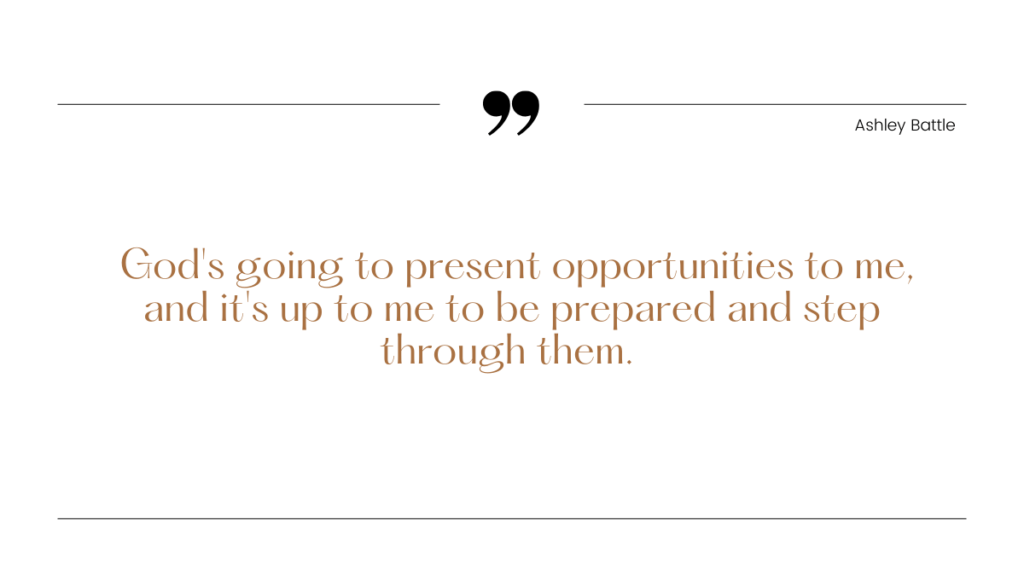
When confronted with professional disappointments—jobs she didn’t get—Ashley doesn’t dwell in defeat. Her perspective is refreshingly optimistic: not that she failed, but that those must not be the right opportunities. Something else is coming. Not every opportunity that presents itself aligns with our true path. Learning to discern which opportunities to pursue—and which to let pass—may be one of life’s most valuable skills. This self-awareness informs Ashley Battle’s template for purposeful living: pursue excellence relentlessly, prepare diligently for opportunities coming, discern wisely, learn from setbacks, and maintain the anomaly of both confidence and humility simultaneously.
This approach was apparent in elementary school. When she was in 5th grade – Ashley knew she was different. She had a coach that year that really focused on fundamentals. Throughout elementary school, she distinguished herself as the most talented player on the boys’ team. What came easily to her did not come as easily to anyone she played with, especially once in high school. We’ve all seen it – that rare individual who stands head and shoulders above everyone else. The one who grasps skills immediately while others struggle. The natural talent who makes the difficult look effortless. But there’s a paradox of such exceptional talent: being the best doesn’t eliminate your need for a team. In fact, it transforms your responsibility within that team.
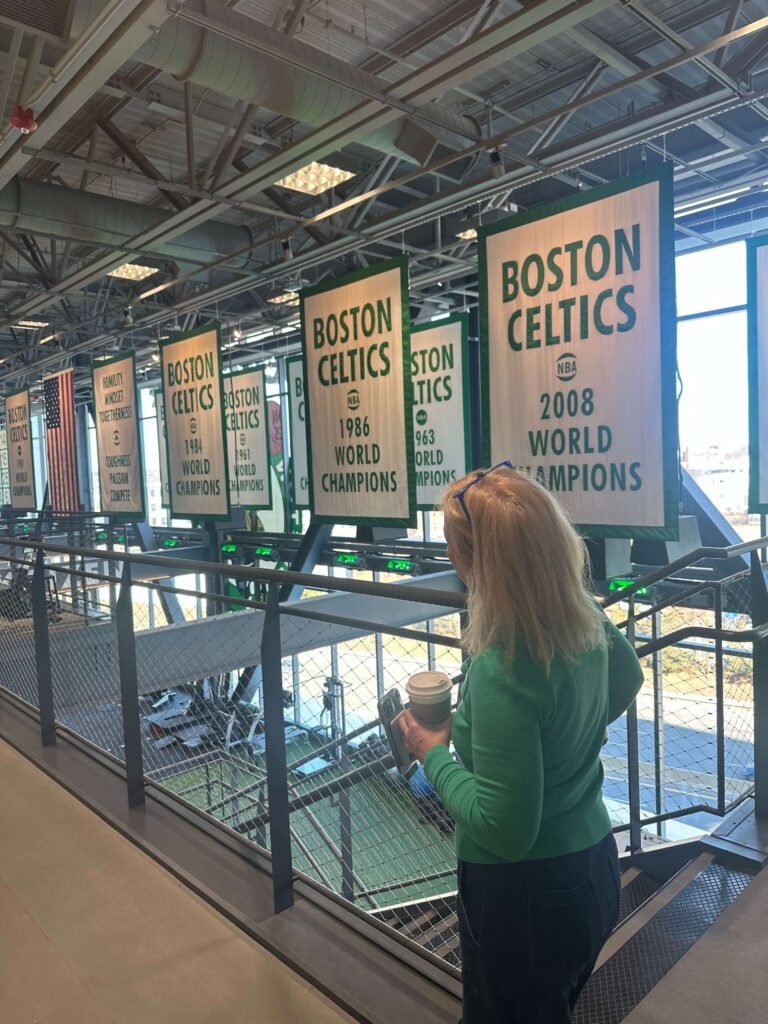
AB: I knew where I would want somebody to be, they just didn’t know where to be. And I had to teach them. So I had to teach my teammates like, Hey, if I’m going this way, go here. Even though I had moments where it was frustrating, it helped me grow as a leader, helped me grow in communication, and helped me grow in ways in which I didn’t really realize at the time being a 15-year-old girl trying to teach people how to play basketball.
I know this about myself. I’m a horrible loser. Back then, you could really see my frustration. I wore it on my sleeve. You could see it in my face. And that’s not necessarily the best way to get your point across. If you want somebody to follow you, you can’t just be mad at them all the time. You really have to teach and show empathy and try to meet them where they are to get them where you want them to go.
This simple realization, “I knew where I would want somebody to be,” is a mark of genuine leadership, but great leaders don’t just have a vision of the destination—they guide others along the path. As a high school basketball player, Ashley discovered that leadership isn’t about being ahead of everyone else; it’s about bringing everyone else along with you. With her exceptional talent, the greatest challenge was never proving her own capabilities – it was multiplying her impact through others. She faced a choice: become limited by the capabilities of those around her or invest in elevating them to new levels. She chose to invest. What began as basketball lessons transcends the sport entirely. Leadership isn’t about demanding that others keep up with your pace. It’s about connecting with them where they are and guiding them toward a vision of success. In the need to explain, demonstrate, and inspire rather than simply execute—she developed muscles she would need as a professional.
In the corporate environment, these principles become essential navigation tools in spaces where her race and gender are underrepresented.
AB: I’m often the only black female in a room full of white men. Sometimes I just don’t talk. I’ll have an opinion, and I won’t say anything.
Liz: And therein breeds imposter syndrome.
AB: And therein breeds imposter syndrome. And they’ll think, “Oh, you’ve been here a while. You should feel comfortable enough talking.” Yeah, not when you get talked over and there’s things happening within the room that you’re just like, I don’t agree with this. So sometimes you pick and choose when’s a good opportunity to go full throttle.
The basketball court teaches when to drive hard to the basket and when to pull back and reset the play. In corporate worlds, Ashley uses her skill of discernment to know when and how to use her voice. This isn’t about silencing herself —it’s about strategic deployment of influence.
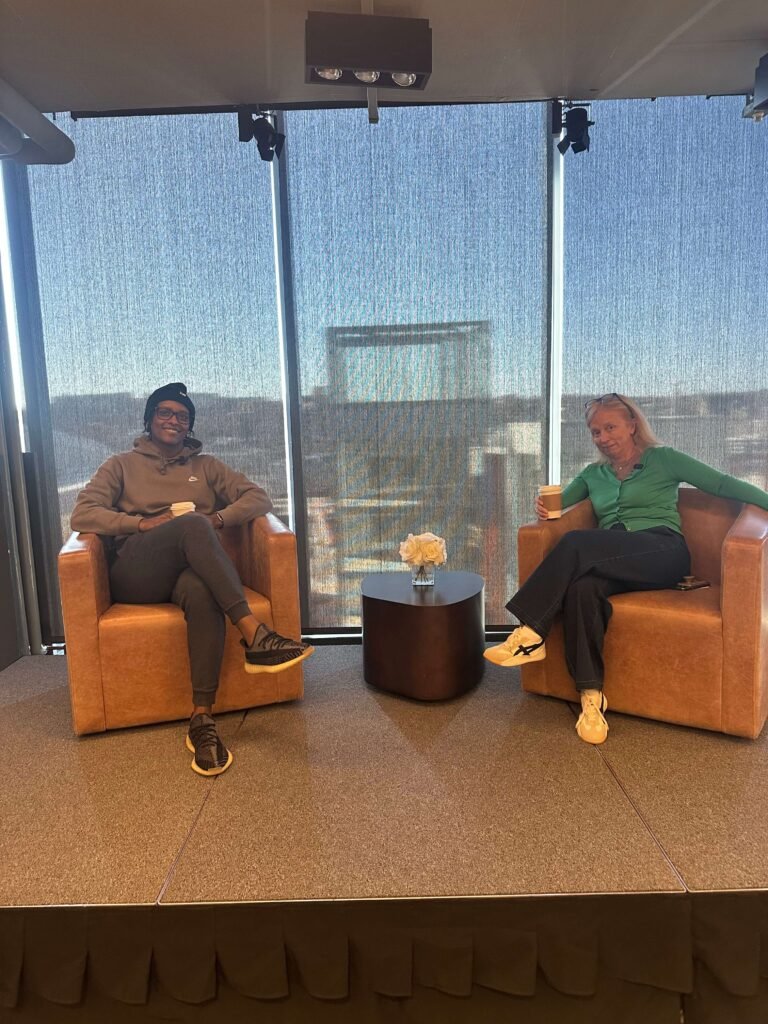
The reality of being talked over or marginalized in meetings breeds what many misidentify as simply “imposter syndrome.” But what looks like self-doubt may just be sophisticated situational awareness. As a black woman leader, Ashley has learned to read rooms with exceptional precision, strategically choosing when to “go full throttle” and when to leverage other skills. The basketball player who knows when to take the shot and when to pass develops exactly this kind of strategic wisdom. Your worth doesn’t fluctuate with your race or gender any more than your influence should change with your shooting percentage.
Having navigated spaces not designed with her in mind, Ashley has developed a natural expertise in creating environments where diverse perspectives can thrive. Her mindset converts obstacles into platforms for demonstrating leadership excellence.
The lessons learned while navigating team dynamics as a young athlete built precisely the skills needed to excel in professional environments, but she also had good role models who guided her early on her path. There’s something deeply moving about her gratitude toward them. Her mother first and foremost, but also her early coaches, and her Head of School, Reno DiOrio, all kept her on the right path. Those adults saw her potential – each one at a different time in her life played that role of “one caring adult,” the steady heartbeat when we are stepping outside our comfort zone.
AB: [Reno] knew the path, and he’s seen it. He knew the path could be screwed up, and he’s seen the path get screwed up. He knew where I lived in Pittsburgh. He knew it was a rough area. He knew that anything could happen. And so he was just really trying to make sure that I stayed on the path. And granted, do I think my path would have been drastically different if I didn’t go to Linsly? No. Linsly didn’t get me a scholarship to college. I did that with my AAU team and stuff like that. I knew the reasoning for me to go to Linsly wasn’t athletics. I knew that I needed to balance where I was athletically and where I needed to be academically. I knew I needed both of those to be at a high level.
Liz: If we were going to make a top five list of what the “one caring adult” needs to do or be, what list would we make?
AB: I think the first thing that would be on the list is respect. And the reason why I say respect is because no matter the age, you should respect that person. Even if they’re a kid, they have thoughts, they have feelings. You have to let them express themselves. Whether or not you agree with it, that’s one thing. But you have to have a dialogue. And I think that was the one thing I had with you, and that’s the one thing I for sure have with my mom. She is like, I don’t care what it is. We can talk about it. Whether or not I want to talk about it or not.
Liz: Number two, as the adult, I have to see myself as a guide and not a preacher. Because I have to recognize that you are going to be your own person, and you have to make your own mistakes to get there. I think sometimes the one caring adult thinks they see the best path for you.
AB: So this is funny that you bring that up. During the recruiting process, I was like…U Conn was becoming established. They had just come off of a national championship. Duke was on their way. They had a really good class coming in. And my mom’s like, “How can you turn down Duke?” A lot of people are just like, “It’s Duke. How can you turn down Duke?” And I’m like, I got to be there. I have to be there. You guys are not going to be there. And I could go to Duke and flunk out, or I could go to U Conn and win three national championships and double major in economics and marketing. My thought with school was like, it is what it is. School is what you make it out to be. I don’t care where you go.
Ashley saw something in the path ahead that would best serve her. She knew she needed to find the right fit. The well-meaning adults were a little blinded by prestige. Myself included. I was her Humanities teacher at the time. It was years before Frank Bruni would write Where You Go Is Not Who You’ll Be, which reset my mindset to align with AB’s – school is what you make of it. Once again in her life, she knew her worth, and it wasn’t measured by the name of a college on her diploma.
Liz: All right, so we came up with two. And to be honest with you, maybe that’s all we need to put on that list. Maybe it really is listening and realizing your job is to let them be their own person.
AB: Yeah.
Liz: Show up.
AB: Yeah, you got to be there.
AB: We had an unfortunate death in my family. My grandmother died my senior year in high school during all of this recruiting process. And Geno was really the only person that expressed his condolences.
Liz: Wow. That’s what it comes down to?
AB: That’s what it comes down to. Who are you as a person.
Liz: Geno made the phone call.
AB: Yeah, you got to be there.
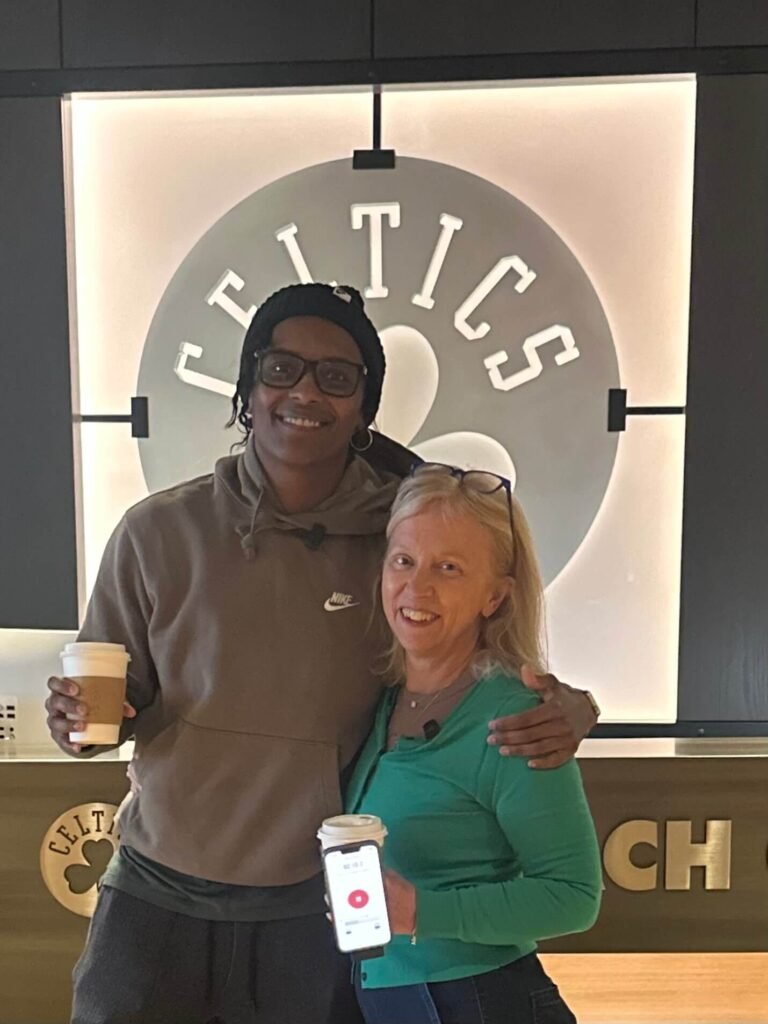
This is truly the pattern I hear over and over and over in these walks. The essence of success is about people – the genuine humanity of a leader. I said in an earlier walk that confidence is born in countless hours in empty gyms, but I was wrong. The gym is rarely empty. There is one caring adult who got you there, or sits in the empty stands, or leaves you the key to lock up. Confidence is born because someone you respect returns the favor.
Basketball was only the beginning. Former teammate, Jessica Moore, forecasted as much.
AB: When we both got done playing, she was like, You know what, AB? Basketball is not going to be what really defines us. She was like, “We’re going to do so many great things that being at U Conn is not going to be the most brilliant thing that’s ever happened to us.”
At age 42, Ashley has some big dreams still ahead.
AB: If I had to pinpoint two things, it would probably be being a GM, and I’d broadcast more. No. There are three things. I’d probably become a mother, too. I would do that for sure. The world needs a little bit more Ashleys.
Liz: I couldn’t agree more. And if I’ve learned anything from talking to a lot of great people, they thought they had the best empathy or the best compassionate view of the world until they had a child.
AB: I got good genes, Liz. They need to be passed down. I’m an only child. The bloodline can’t end with me.
Liz: That’s right. I have the name, and I gave my name to my girls, even though they have Mark’s name, too, because I’m the end of Hofreuters.
AB: That’s what I’m saying.
Liz: And I hope they’ll continue it, even if it’s in the middle name.
AB: That’s what I’m saying.
Liz: Because there’s something about not letting something die.
AB: You want to talk about pressure? That’s pressure.
Liz: There’s no doubt about it.
AB: If I had to do one thing all over again, I would have become a mother way sooner. I would have done that way sooner.
Liz: And someday you’ll see why you didn’t.
AB: I mean, I live a great life.
Liz: You do.
AB: I understand why I didn’t. But if there was one thing that you would say, Oh, you’re going to regret? Yeah, I would do that sooner. Ready or not ready, I would have done it sooner.
Liz: I adopted Ella at 41, almost turning 42.
AB: What a blessing Ella is, too.
Liz: Oh, what a blessing. It’s hard now. I’m grandma-age.
AB: That is what it is going to be for me. I’m going to be a fun grandma, though.
She’ll be a fun grandma just like I remain “sporty spice” – a name my niece gave me 21 years ago when she was afraid my having a baby would change the way I approached life and played with her. It hasn’t. Not on most days. At 58, I’m still “sporty spice.” And I see in Ashley something I know which is true for myself – we both have the heart of a child. Not only do we see the potential in a child and respect that, but in interactions with adults, I can see the innocent child within them. I try to appeal to that. The heart of a child doesn’t mean childish leadership—it means bringing our most human qualities to our work and our life. It means connecting with others where they are. It means leading with wonder, authenticity, and empathy in the pursuit of excellence in every encounter. I think that just might be a good definition for living the dream.
—
Postscript
Ashley still teaches others with respect – not arrogance – just helping you see something in yourself or do something you didn’t know you had in you. As it was when she made sure I made a basket at the Celtics practice facility where we walked.
AB: So I’m going to just give you… Come closer. Give you a little bit of pointer. So when you’re going to shoot it… good angle… this is a great angle. You see the top of the box? Aim for right there. Just like that.
Liz: You have told me that before in this lifetime. It’s the way I hold the ball that sucks. Yeah, good.
AB: It’s just higher. Just higher.
AB: Boom.

